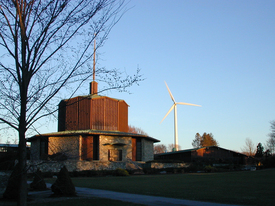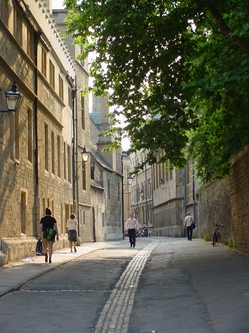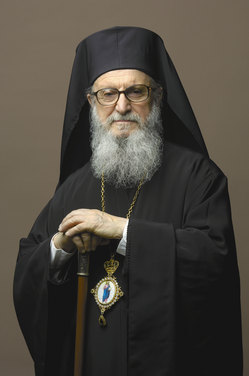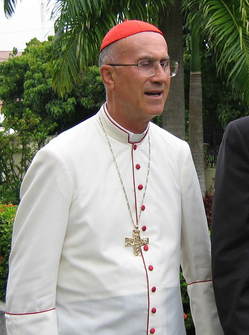According to Matt Bai’s article “Newt. Again.” in the March 1st NYTimes Magazine, Newt Gingrich, 65, is coming into full communion with the Catholic Church, or at least that is what he reported. The author made a simple parenthetical statement that Newt was entering his wife’s faith. Thanks be to God.
Category: Culture
The Portsmouth Institute announces inaugural conference “The Catholic William F. Buckley Jr.”
On the feast of Saint Scholastica (February 10th), The Portsmouth Institute was launched.
“The Portsmouth Institute is a summer conference, study, recreation and retreat center for Catholic intellectuals, scholars and all those who are interested in questions pertaining to Catholic leadership, life and service in the 21st century.”
 What is labeled as “
What is labeled as “
 The Institute’s webpage indicates that
The Institute’s webpage indicates that
Initial funding for The Portsmouth Institute has been established with generous contributions from National Review Institute, the William E. Simon Foundation, the Healey Family Foundation and other generous alumni and friends. Accepting the role of director is Jamie MacGuire, Senior Development Officer of the
The Portsmouth Institute will feature leadership and participation by
The Institute’s inaugural conference will be “The Catholic William F. Buckley Jr.: In Gratitude”
Study Latin in Oxford
 An intensive Ecclesiastical Latin Course is now available in
An intensive Ecclesiastical Latin Course is now available in
Information is available at www.stbedeshall.org.
Religious film posters exhibit chronicled in NYC

“None can sense more deeply than you artists, ingenious creators of beauty that you are, something of the pathos with which God at the dawn of creation looked upon the work of his hands. A glimmer of that feeling has shone so often in your eyes when–like the artists of every age–captivated by the hidden power of sounds and words, colours and shapes, you have admired the work of your inspiration, sensing in it some echo of the mystery of creation with which God, the sole creator of all things, has wished in some way to associate you” (John Paul II, Letter to Artists, 1). With this in mind, I think of the various ways the arts of engaged my sense of beauty, how good art has expressed my relationship with God and how impoverished (even oppressive) life would be without the work of artists.
Honestly, I rarely think with any degree of seriousness on how religious posters have demonstrated the genius of human creativity much less how this medium has impacted the our sense of living in tension with the Divine. But I believe this is what we have here. The exhibit, “Reel Religion: A Century of the Bible and Film” gives us a strong indication of this impact and what has transpired since the 19th century.
The posters belong are a part of Dominican Father Michael Morris‘ (and look here) collection. Morris is a professor of art and religion at the Graduate Theological Union in Berkeley, California .
Besides posters there are other memorabilia such as Charlton Heston’s tunic and cape from the 1959 award-winning Ben-Hur and correspondence from directors.
The “Reel Religion” exhibit opened February 6th and will close on May 17th.
See a video clip on the subject.
“The Museum of Biblical Art (MOBIA) brings to the public an interpretation of art through the lens of biblical religions and an understanding of religion through its artistic manifestations.”
A version of this exhibit was seen at St. Louis University’s MOCRA last year.
Archbishop Demetrios Chair in Orthodox Theology and Culture, at Fordham Univ
 The President of Fordham University, Fr. Joseph M. McShane, S.J. announced Tuesday Feb. 17, a Jaharis Family Foundation gift establishing the Archbishop Demetrios Chair in Orthodox Theology and Culture as part of the Orthodox Christian Studies Program of this renowned Roman-Catholic Jesuit University.
The President of Fordham University, Fr. Joseph M. McShane, S.J. announced Tuesday Feb. 17, a Jaharis Family Foundation gift establishing the Archbishop Demetrios Chair in Orthodox Theology and Culture as part of the Orthodox Christian Studies Program of this renowned Roman-Catholic Jesuit University.
The announcement came at the conclusion of the Sixth Annual Orthodoxy in America Lecture given this year by Fr. Stanley Harakas, ThD, who is the Archbishop Iakovos Professor of Orthodox Theology Emeritus at Holy Cross Greek Orthodox School of Theology. Fr. Harakas’ topic “The Future of Orthodox Christianity in
Following the lecture President McShane announced the establishment of the Archbishop Demetrios Chair in Orthodox Theology and Culture through a generous donation of two million dollars by the Jaharis Family Foundation. Fr. McShane welcomed Michael and Mary Jaharis as he expressed his great joy and gratitude. He further said that naming the chair after Archbishop Demetrios is a most deserving honor and that the University was “thrilled that his name (the Archbishop’s) and the name of the Jaharis family will forever be associated with Fordham.”
Newman Guide Profiles of Catholic Colleges Now Online
A new independent report on college costs published by The Center for the Study of Catholic Higher Education–the research division of The Cardinal Newman Society–reveals that some of the most faithful Catholic colleges and universities in the United States also offer students significant cost savings.
Among the study’s key findings:
· Average tuition for students at the recommended faithful Catholic colleges is about $3,000 less than at other Catholic colleges and about $1,000 less than the average private college.
· The Newman Guide colleges provide students a larger portion of institutional aid (39%) than the average private college (29%).
· Students at the recommended Catholic colleges graduate with fewer loans and less debt–on average, about $2,000 less than at private colleges and $1,400 less than other Catholic colleges.
The study was conducted by Andrew Gillen, Ph.D., a leading expert on college affordability issues and the research director of the Center for College Affordability and Productivity. The study is available online at TheNewmanGuide.com.
In order to help families learn more about the Newman Guide’s recommended faithful and affordable colleges, beginning today their campus profiles are available online for the first time at TheNewmanGuide.com.
The recommended Newman Guide colleges are Ave Maria University, Aquinas College (Tenn.), Belmont Abbey College, Benedictine College, The Catholic University of America, Christendom College, The College of Saint Thomas More (Texas), DeSales University, Franciscan University of Steubenville, Holy Apostles College & Seminary, John Paul the Great Catholic University, Magdalen College, Mount St. Mary’s University, Our Lady Seat of Wisdom Academy, St. Gregory’s University, Southern Catholic College, Thomas Aquinas College, The Thomas More College of Liberal Arts (N.H.), University of Dallas, University of St. Thomas (Texas), and Wyoming Catholic College.
Is he sorry?
 Tonight’s evening news had an update on the A-Rod drug scandal. What I find amazing is that a man would admit to taking steroids, citing pressure, to enhance his performance to play a high profile sport and get paid $275 million (by all accounts a record). A-Rod must think everybody is looking the other way and stupid. His defense was that as 25 year old he made some stupid decisions.
Tonight’s evening news had an update on the A-Rod drug scandal. What I find amazing is that a man would admit to taking steroids, citing pressure, to enhance his performance to play a high profile sport and get paid $275 million (by all accounts a record). A-Rod must think everybody is looking the other way and stupid. His defense was that as 25 year old he made some stupid decisions.
Fair enough, we all do things we regret. No one, except the Savior of mankind and the BVM can claim otherwise. Original Sin has deeply affected our lives. As a Catholic, I can testify to the beauty of the Catholic faith by the mercy experienced when you ask for the mercy of God (forgiveness!) through the sacrament of Confession, make amends with your brothers and sisters AND you change your life. I don’t know A-Rod’s faith life but something seems out of whack here in that he still has a job playing baseball and he’s still being looked upon as a hero. Not telling the truth is a serious offence. If the news caught A-Rod expressing his sorrow by saying “I am sorry” to the public, it wasn’t aired. I wonder if he said those 3 words. Personally, I think the Yankees should fire the man AND go to confession. But that’s me.
Moreover, a 9 year old child told a report that what A-Rod did “wasn’t wrong but he should not have used drugs.” Not wrong? WHAT???? I suppose the child’s moral formation is still in flux at the moment but this is crazy. I’d like to know what the parents teach this young man. What moral formation does this child get in school, in church, in the Boy Scouts?
Blackfriars Rep in the NYTimes
In the Saturday (February 13, 2009) issue of the NYTimes’ Connecticut section there’s an article on the excellent work of Blackfriars Repertory Theatre. Have a read…
Music can proclaim Christ
 “Music, like art, can be a particularly great way to proclaim Christ because it is able to eloquently render more perceptible the mystery of the faith.” Music can “help us contemplate the intense and arcane mystery of Christian faith.”
“Music, like art, can be a particularly great way to proclaim Christ because it is able to eloquently render more perceptible the mystery of the faith.” Music can “help us contemplate the intense and arcane mystery of Christian faith.”
(Pope Benedict XVI spoke after a concert given Our Lady’s Choral Society of the Archdiocese of Dublin, Ireland on the occasion of the 80th anniv.
Cardinal Bertone speaks about the role of the family and culture today
 The Cardinal Secretary of State to His Holiness, Tarcisio Bertone was in
The Cardinal Secretary of State to His Holiness, Tarcisio Bertone was in
Bertone was interviewed by Carlo Di Cicco, deputy director of the
One of the relevant questions was on the family and culture why the cardinal gave substantial attention to these topics. What is good to keep before our eyes is the witness that BOTH family and culture can have for work in the Kingdom of God. In answer to this query, Cardinal Bertone said:
Because in reality, the family is the first transmitter of values and culture for the new generations; for children and young people growing up, the family is the transmitter of values. This is a proven fact in the experience of family life, despite all the difficulties that mark the way, not only in
I recall a conference, a debate, that took place here in
In the end we agreed that the family is the first instance of the transmission of values — and this is also the conviction of the Popes: of John Paul II and, particularly, Pope Benedict, as taken up in the two messages addressed to
It transmits the identity, the family’s own identity, and the cultural and spiritual identity of a people.
Then the state is born thanks to the grouping, the communion among families, that is why the state should have the mission to strengthen the identity of a people grounded in its roots, in its origins, which later determine the development of both the political and ecclesial community.
Regarding Culture the cardinal was asked: In the meeting with [people of] the world of culture and education you emphasized the limited success that Mexican culture had during the last century. Is it not a rather harsh judgment for a Church that suffered persecution, including a bloody one?
Cardinal Bertone: It is, in fact, a question of harsh judgment. I literally quoted an author, Gabriel Zaid, who remembers his meeting with a European bishop who asked him: “Is a Catholic culture possible in
When this European bishop, more precisely this Dutch bishop, asked him what could be expected of
“In
This diagnosis is certainly pessimistic: I have taken it up again precisely because there have been incentives, highly significant positive aspects, so that it would be very unjust to stress the negative and subscribe fully to this diagnosis.
Nevertheless, the writer’s observation and the bishop’s question require an answer; they are stimulating.
That culture is necessary in the work of the Church, and even more so in humanity itself, was affirmed by Pope John Paul II, in his great address in UNESCO, when he cried out: “The future of man depends on culture! The peace of the world depends on the primacy of the Spirit! The peaceful future of humanity depends on love!” Thus he related peace, culture and love.
For the Church, cultural promotion is an innate reality, written in her DNA, in her history: It is an urgent and necessary imperative.
By the very fact that the Gospel is itself creator of culture, the proclamation of the Gospel is cultural creation.
The truth is that the Church in
Despite his young age, he was arrested, and after his capture he was killed. Before dying, he wrote “Long Live Christ the King,” which was the cry of Mexican martyrs.
That is why